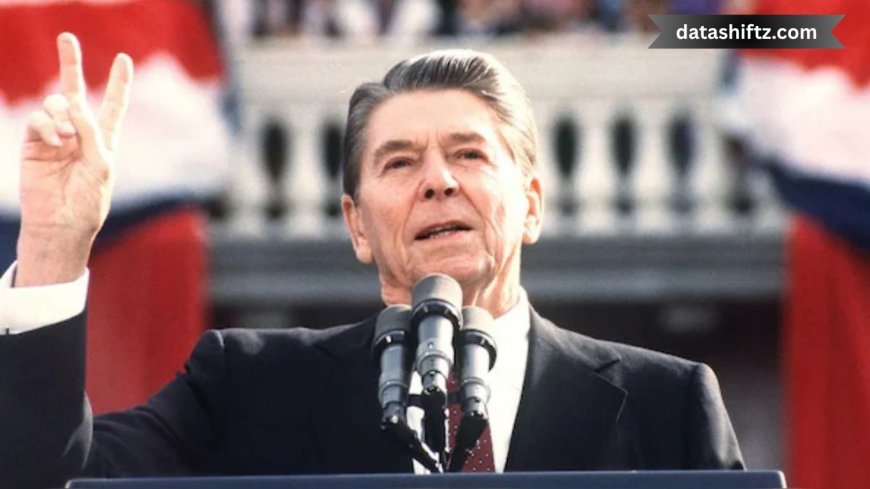The Enduring Influence of Ronald Reagan in Today’s Headlines

Ronald Reagan, the 40th President of the United States, remains a central figure in American political discourse. Decades after his presidency, his legacy continues to influence policies, inspire leaders, and provoke debate. From his economic strategies to his role in ending the Cold War, Reagan’s impact still resonates in today’s political and cultural conversations.
Reagan's Legacy in the News: A Timeless Influence
Ronald Reagan served as president from 1981 to 1989, following a successful career in Hollywood and as Governor of California. Despite the passage of time, Reagan frequently resurfaces in political news cycles. His name is often cited in policy discussions, especially by conservative leaders who aim to emulate his style, values, and economic vision.
In recent months, several headlines have spotlighted Reagan's enduring influence:
| Date | News Headline | Summary |
|---|---|---|
| June 2025 | “GOP Candidates Embrace Reagan-Era Tax Policies” | Many 2024 election hopefuls cited Reagan’s economic reforms as a model. |
| May 2025 | “Reagan’s Foreign Policy: A Blueprint for Modern U.S.-China Relations?” | Think tanks revisit Reagan’s Cold War tactics in relation to China. |
| April 2025 | “Reagan Presidential Library Launches AI-Powered Virtual Exhibit” | A new digital experience highlights Reagan’s speeches and legacy. |
| March 2025 | “Reaganomics 2.0? Debates Reignite Over Trickle-Down Economics” | Economists analyze the long-term effects of Reagan's tax policies. |
| February 2025 | “Ronald Reagan Day Celebrated in 40 States” | Celebrations highlight Reagan’s birthday with speeches and tributes. |
These stories demonstrate that Reagan is not just a historical figure — he’s a benchmark for modern political ideologies.
Reaganomics: A Lasting Economic Strategy
One of Reagan’s most talked-about legacies is “Reaganomics,” a term used to describe his economic policies based on supply-side economics. His administration focused on four key principles:
Reaganomics Key Principles
-
Tax Cuts: Especially for the wealthy and corporations, to encourage investment.
-
Reduced Government Spending: Except for military expenditure.
-
Deregulation: Particularly in banking, energy, and telecommunications.
-
Tight Monetary Policy: To combat inflation.
While these policies stimulated economic growth during the 1980s, critics argue that they contributed to income inequality and national debt. Today, discussions around Reaganomics continue to divide economists and policymakers.
Reagan and the Cold War: A Diplomatic Legacy
Reagan’s hardline stance against the Soviet Union marked a pivotal era in international relations. His famous challenge — “Mr. Gorbachev, tear down this wall!” — remains symbolic of his role in ending the Cold War.
Major Diplomatic Moves Under Reagan:
-
Strategic Defense Initiative (SDI): A proposed missile defense system dubbed “Star Wars.”
-
INF Treaty: Signed with Mikhail Gorbachev in 1987, eliminating intermediate-range nuclear weapons.
-
Military Buildup: Increased defense spending to pressure the USSR economically.
These actions are credited with accelerating the Soviet collapse, though some argue the USSR’s internal issues played a larger role.
Reagan in Modern Political Discourse
Reagan is often cited as a gold standard by conservative leaders. His communication skills, dubbed the "Great Communicator", and optimistic view of America made him a unifying figure for the Republican Party.
Politicians Who Frequently Reference Reagan:
-
Ron DeSantis: Florida Governor often praises Reagan’s strong leadership style.
-
Nikki Haley: Calls Reagan her political inspiration.
-
Donald Trump: Though stylistically different, has praised Reagan’s America First ethos.
-
Mitt Romney: Long-time admirer of Reagan’s diplomacy and fiscal conservatism.
His legacy also appears in ideological platforms like “Reaganite Conservatism,” which emphasizes free markets, strong defense, and traditional values.
Facts About Ronald Reagan
To better understand Reagan's continuing impact, here is a concise breakdown of his life and presidency:
| Category | Information |
|---|---|
| Full Name | Ronald Wilson Reagan |
| Birth | February 6, 1911 |
| Death | June 5, 2004 |
| Political Party | Republican |
| Vice President | George H. W. Bush |
| Notable Quote | “Government is not the solution to our problem; government is the problem.” |
| Major Legislation | Economic Recovery Tax Act, Tax Reform Act of 1986 |
| Major Foreign Policy | Ending the Cold War, Military buildup, Strategic Defense Initiative |
Ronald Reagan's Most Iconic Moments
-
Transition from Hollywood actor to politician
-
Governor of California (1967–1975)
-
Launching Reaganomics in 1981
-
INF Treaty signing with Gorbachev
-
Tear down this wall!" speech in Berlin (1987)
-
Masterful communicator with the American public
-
Rebuilding American military strength
-
Championing conservative values in domestic policy
Conclusion: Why Reagan Still Matters Today
Whether admired or criticized, Ronald Reagan’s influence on American politics is undeniable. From tax policy to diplomacy, his legacy continues to be debated, celebrated, and used as a benchmark by modern leaders. As political landscapes shift, many turn back to the Reagan era for guidance, inspiration, and context.






























